To Zoltan Barany, professor at the University of Texas, who has focused his research and writing on military politics, the transition to democracy from a 53 year old military dictatorship in Burma will be far more difficult than in Korea, Thailand and Indonesia.

In his 15 page article Exits from Military Rule: Lessons for Burma, Journal of Democracy, April 2015 issue, he has listed his reasons:
- The military has been in power for a longer period (since 1962)
- Its domination of politics and public life has been for more overpowering
- Its penetration of the national economy and control of society have been far greater than in any of the three said cases
- Corruption is also much more pervasive and it permeates political, societal, and commercial exchanges on every level
- The generals had for decades—almost half a century —isolated from the outside world, making it unusually challenging for foreign governments, NGOs and companies to provide assistance
- The opposition, unlike its Indonesian counterpart, is so divided it has been unable to extract major concessions from the regime
- Limited political and economic reforms introduced by the junta since 2010 are nevertheless easily irreversible and reflect the generals’ interest in avoiding foreign economic sanctions and escaping international isolation rather than any enthusiasm for democratization
- The military continues to dominate Burmese politics and business, and it is hard to see why it would give up its hold on power
- The generals’ plan—a limited political opening that would allow them to continue leading the country with a veneer of legitimacy—has also worked so well they have managed to stall key reforms with little more than mild rebukes from abroad
- The 2008 constitution which reserves 25% of parliamentary seats for the military and prevents any amendments without its approval has also created a veritable constitutional bunker for it
- In Burma, as in the three said countries, the military is historically the strongest institution
But the author doesn’t say Burma is not without a hope:
- He urges pragmatic Burmese activists to keep in mind Indonesia as the example and aspire to emulate
- They also ought to be prepared for a lengthy struggle
- A rift that is said to have developed among the regime’s three main leaders—Senior Gen Min Aung Hlaing, President Thein Sein and speaker of the lower house of parliament Shwe Mann— also presents a ray of hope
- They need to unite disparate opposition groups, forge a substantive alliance with the country’s diverse ethnic groups and “patiently but steadily” pressure the generals toward further reforms until entirely free and fair elections can decide the country’s political destiny
However he advises against “swift and drastic changes” because they might unnecessary provoke the ire of those for whom the regime change means the loss of power and privilege. “Following a gradualist approach that favors coalition-building and a willingness to make acceptable compromises is usually a more prudent way to proceed,” he writes.
For more details, please read the full article in www.journalofdemocracy.org.





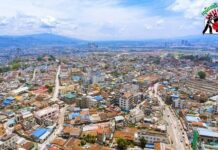
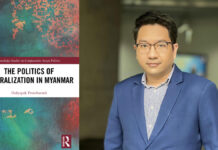
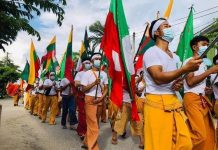
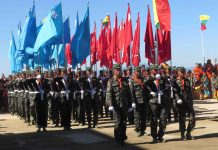
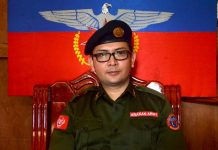






Leave a Comments